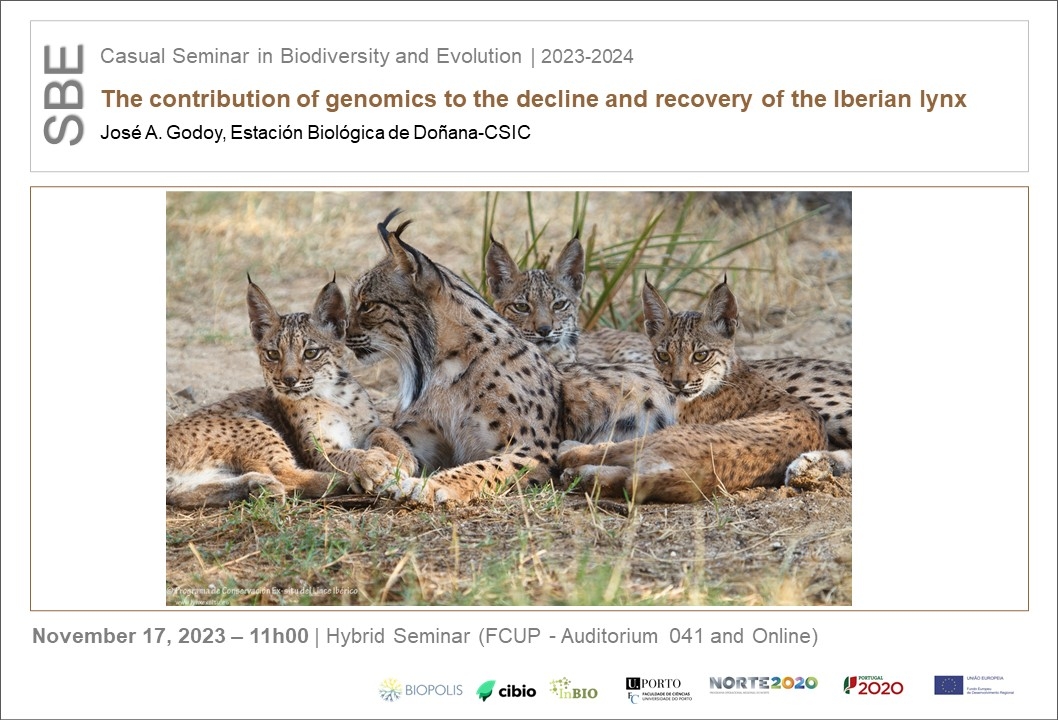The contribution of genomics to the decline and recovery of the Iberian lynx
17 Nov 2023 - José A. Godoy, Estación Biológica de Doñana-CSIC | 11h00 | Hybrid Seminar (FCUP - Auditorium 041 and Online)

CASUAL SEMINAR IN BIODIVERSITY AND EVOLUTION
The Iberian lynx was at the brink of extinction by the end of the 20th century, but is now steadily recovering, providing an amazing conservation success story. The species is one of the least genetically diverse, and ancient and historical data suggest this is the result of a combination of small long-term effective sizes, historical bottlenecks, and the range fragmentation and local extirpation occurring during the last century. Inbreeding and low genetic diversity has affected reproduction and survival, and several genetic disorders have reached moderate frequencies, including an idiopathic juvenile epilepsy. Genomic data provide evidence for the accumulation of moderately deleterious variation as a short-term effect of bottlenecks, and also for the long-term purging of highly deleterious variation. Ongoing marker-assisted genetic management involves the mixing of the two genetically differentiated remnant populations, both in captivity and through translocations. This has resulted in the genetic rescue of the highly-inbred Doñana population, driven mostly by a single highly-successful translocated male and by the higher reproductive success of admixed individuals. The captive breeding program has succeeded in capturing and preserving extant genetic variation and is providing 30-40 animals per year for reintroductions since 2015. The latest LIFE project "Lynxconnect” is implementing an intensive non-invasive genetic monitoring program that provides the demographic and genetic data for a comprehensive genetic management program that integrates remnant, captive and reintroduced populations. The intensively monitored and managed Iberian lynx, together with the available genomic resources, provide an excellent opportunity to investigate the genomic basis of inbreeding depression and genetic rescue, and to further extend the contribution of genomics to species conservation through the identification and management of genetic disorders.
José A. Godoy is a molecular ecologist and conservation geneticist applying genomic data and tools to understand the genomic and fitness consequences of species decline and fragmentation, and to support species conservation through genetic monitoring and management. He is a researcher at Estación Biológica de Doñana (EBD-CSIC), Sevilla, Spain, a scientific advisor of the Spanish Ministry of Environment for the Iberian lynx and the Iberian imperial eagle, and a member of Conservation Genetics Specialists Group of the International Union for the Conservation of Nature (CGSG-IUCN).
[Host: Raquel Godinho, Ecogenomics - ECOGEN]